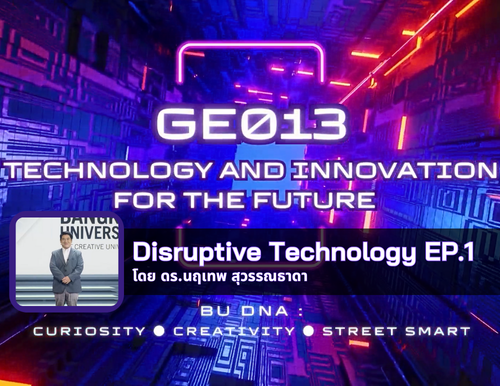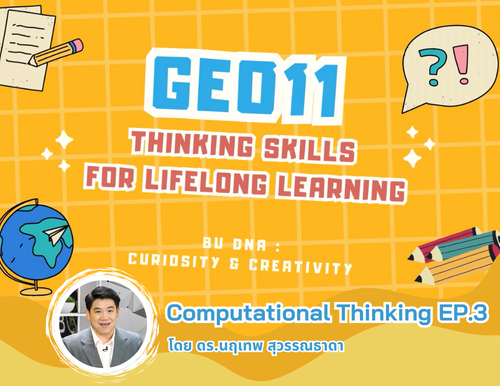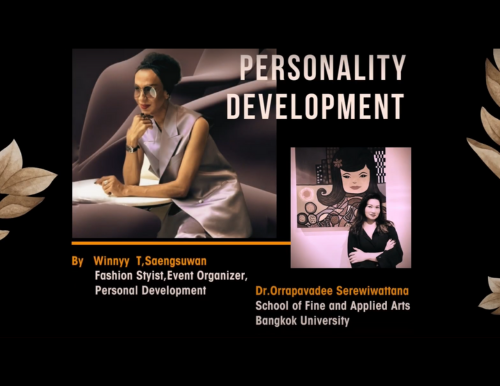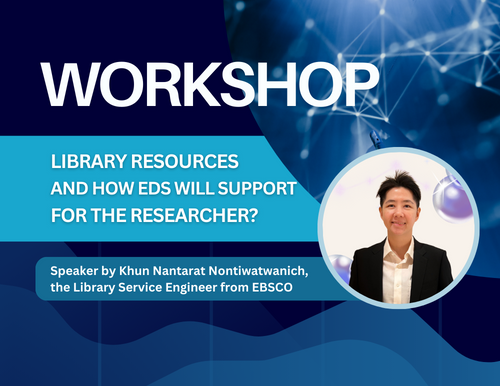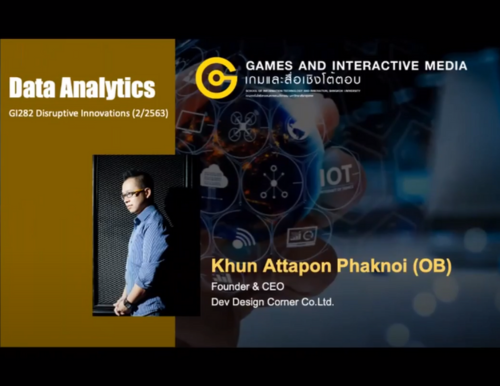The EBSCO database involves searching and accessing high-quality academic articles and research. The steps include targeted searching, reading, downloading, and saving desired articles in the system. Filters and advanced search functions help narrow down results to better match specific needs.
เทคโนโลยีหรือนวัตกรรมที่เข้ามาเปลี่ยนแปลงภาคธุรกิจและพฤติกรรมของผู้บริโภคอย่างรวดเร็วและรุนแรง ซึ่งจะมีผลต่อตลาดของผลิตภัณฑ์เดิมหรือเทคโนโลยีเดิม ๆ โดยที่อาจจะเข้ามาแทนที่เทคโนโลยีเดิมทำให้เทคโนโลยีเหล่านั้นหายไปอย่างถาวร โดย ดร.นฤเทพ สุวรรณธาดา
แนวคิดเชิงคำนวณ Computational Thinking เป็นกระบวนการวิเคราะห์ปัญหา เพื่อให้ได้แนวทางหาคำตอบอย่างเป็นขั้นตอนที่สามารถนำไปปฏิบัติได้อย่างถูกต้อง โดย ดร.นฤเทพ สุวรรณธาดา
การบรรยายเกี่ยวกับการเรียนรู้พัฒนาบุคลิกภาพทั้งภายในและภายนอก ให้ทุกคนมีความมั่นใจในตัวเอง เพื่อเตรียมความพร้อมในการฝึกงาน หรือการเข้าทำงานในอนาคต โดย คุณวินนี่ แสงสุวรรณ และดร.อรภาวดี เสรีวิวัฒนา
Lao economy, Lao job market & labor law, AEC and labor mobility, demand for talents, get yourself ready and about 108JOB By Keovisouk Dalasane
Lao economy, Lao job market & labor law, AEC and labor mobility, demand for talents, get yourself ready and about 108JOB By Keovisouk Dalasane
Lao economy, Lao job market & labor law, AEC and labor mobility, demand for talents, get yourself ready and about 108JOB By Keovisouk Dalasane
This workshop covers advanced searching and the more sophisticated of databases in the EBSCOhost platform. Library Resources, What is EDS and how it works?, Techniques in “Feature & Setting”, How EDS support the researcher. By Nantarat Nontiwatwanich on January 20, 2024
Brexit has significant political, economic, and social implications for both the UK and the EU, as it involves the renegotiation of various agreements, such as trade, immigration, and security. By Prof. Dr. Holger Paschedag from Aschaffenburg University of Applied Sciences (UAS)
การบรรยายแบบออนไลน์ เรื่อง Data Analytics Trends
โดย Khun Attapon Paknoi, Entrepreneurship and Innovation, Specialist and Researcher, University of London
เมื่อวันที่ 3 มีนาคม 2564
เป็นส่วนหนึ่งของวิชา GI282 Disruptive Innovation ปีการศึกษา 2563

